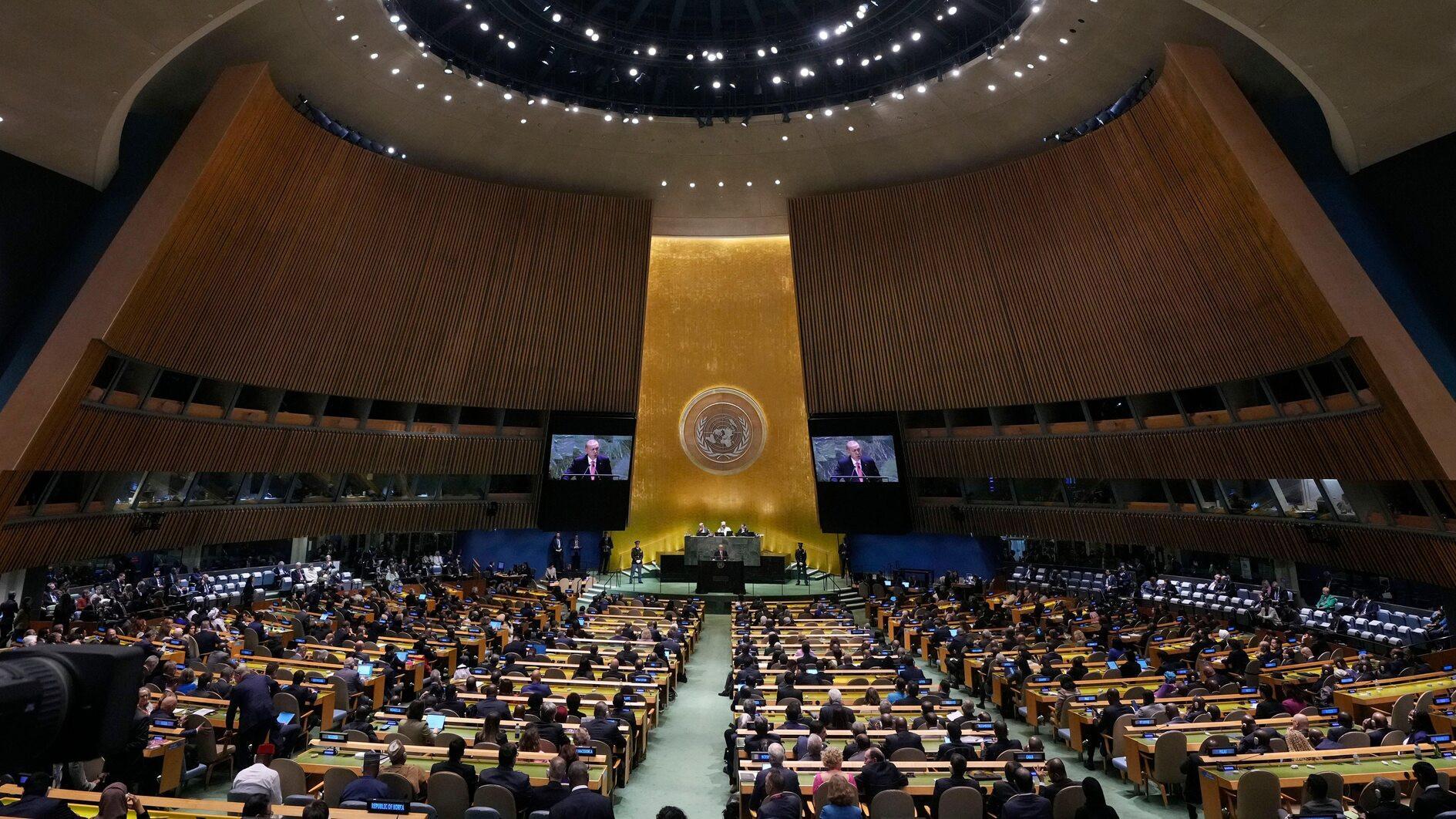
World leaders lined up at the United Nations on Tuesday to call on Israel to refrain from a full-scale war in Lebanon, with the organization's chief warning the situation was on the "brink."
The U.N. General Assembly, the high point of the international diplomatic calendar, comes after Lebanese authorities said Israeli strikes had killed 558 people — 50 of them children.
"Full-scale war is not in anyone's interest. Even though the situation has escalated, a diplomatic solution is still possible," U.S. President Joe Biden said in his farewell address to the global body.
"In fact, it remains the only path to lasting security to allow the residents from both countries to return to their homes on the border safely," Biden said ahead of an emergency U.N. Security Council session on Lebanon planned for Wednesday.
Biden's remarks drew disappointment from Lebanon's foreign minister Abdullah Bou Habib who said they were "not promising" and "would not solve the Lebanese problem," as he estimated that the number of people displaced by Israel's strikes has likely soared to reach half a million.
"We should all be alarmed by the escalation. Lebanon is at the brink," U.N. Secretary-General Antonio Guterres said when he opened the gathering.
'End this war'
It is unclear what progress can be made to defuse the situation in Lebanon, with efforts to broker a ceasefire in Gaza — which Israel has relentlessly pounded since October 2023 — coming to nothing.
Biden on Tuesday pushed again for an elusive ceasefire between Israel and Hamas, telling the global body it was time to "end this war."
Mediator Qatar accused Israel of obstructing Gaza ceasefire talks, with Emir Sheikh Tamim bin Hamad Al-Thani saying "there is no Israeli partner for peace" under the government of Benjamin Netanyahu.
But he added: "We will continue our efforts of mediation to resolve the disputes through peaceful means."
Turkish President Recep Tayyip Erdoğan accused Israel of dragging the entire region "into war."
"Not only children but also the U.N. system is dying in Gaza," Erdogan said in a scathing speech.
“Gaza has become ‘the world’s largest graveyard for children and women’ because of Israel’s attacks,” he added.
“We are witnessing that international peace and security are too important to be left to the whims of five countries,” he added.
“In an environment where U.N. Security Council resolutions are not implemented, coercive measures should be taken against Israel. Just as Hitler was stopped 70 years ago, Netanyahu and his murderous network must be stopped by an alliance of humanity.”
Erdoğan noted that Türkiye has no enmity against the people of Israel and that its problem is with the Israeli government’s policy of massacres and genocide.
Guterres cautioned against "the possibility of transforming Lebanon (into) another Gaza," calling the situation in the Palestinian territory a "non-stop nightmare."
European Council President Charles Michel said that Israel had the right to exist and defend itself but without inflicting "collective punishment" on civilians living in areas targeted by its military.
President Masoud Pezeshkian of Iran — which backs Hezbollah in Lebanon and Hamas in Gaza — condemned "senseless and incomprehensible" inaction by the U.N. against Israel.
'Hypocrisy'
British foreign minister David Lammy also sounded the alarm over the escalating violence in Lebanon.
"I am very worried about the risk of escalation, and this breaking into a wider regional conflict," he told AFP as Britain announced it was deploying military units to Cyprus to assist with any evacuation of its citizens from Lebanon.
Responding to criticism of Israel, Danon called the General Assembly debate an "annual charade of hypocrisy."
Since last year's annual gathering, when Sudan's civil war and Russia's Ukraine invasion dominated, the world has faced an explosion of crises.
The Oct. 7 attack by Palestinian group Hamas on Israel resulted in the deaths of 1,205 people and prompted a military response in Gaza that authorities say has killed at least 41,467 people.
Militants also seized 251 hostages, 97 of whom are still held in Gaza, including 33 the Israeli military says are dead.
Violence has raged across multiple fronts in the Middle East since the crisis erupted, with the conflict exposing deep divisions at the U.N..
Palestinian President Mahmud Abbas took his seat alongside the Palestinian delegation, placed in alphabetical order in the General Assembly for the first time on Tuesday after the delegation received upgraded privileges in May.
At the rostrum, Jordan's King Abdullah II on Tuesday ruled out the forced displacement by Israel of Palestinians to his country, which he said would be a "war crime."
“We will not sit silent and watch as apartheid is perpetrated against others," said South African President Cyril Ramaphosa, addressing the General Assembly, evoking his country’s decades-long fight against apartheid, which finally ended with success in the 1990s
He also welcomed the international support for the genocide case South Africa has filed against Israel at the International Court of Justice.
Colombian President Gustavo Petro criticized Netanyahu for Israel’s attacks on the Gaza Strip during his speech to the U.N. General Assembly.
"It is in this inequality...that we find the logic of the mass destruction unleashed by the climate crisis and the logic of the bombs dropped by a criminal like Netanyahu on Gaza," said Petro.
“When Gaza dies, all of humanity will die,” he said. “Today, we have 20,000 dead children. Presidents laugh at this situation in the U.N. General Assembly.”